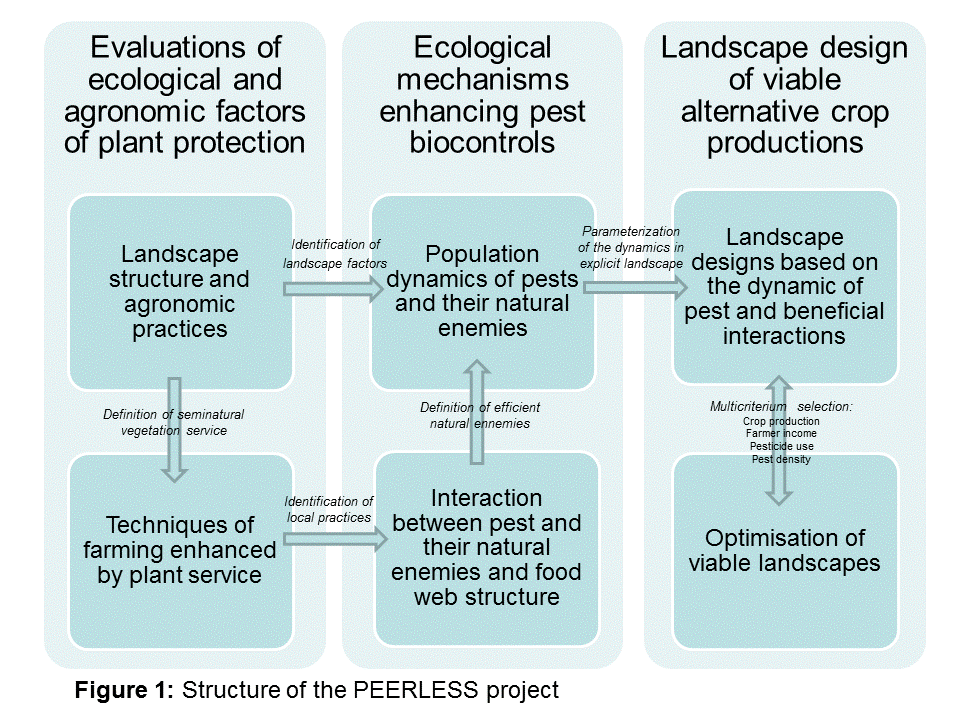PEERLESS: Predictive Ecological Engineering for Landscape Ecosystem Services and Sustainability
With the shift towards a reduced reliance on external inputs in agriculture, identifying management options that enhance the provision of ecosystem services has become a critical issue. Pest control resulting from the activity of naturally present predators and parasitoids is frequently cited as an important service that could reduce pesticide use as targeted by the French 2018 Ecophyto governmental action. However, the link between management options, pest control level and ultimately crop yield is poorly understood. The PEERLESS project aims to identify alternative management strategies that enhance the crop protection service provided by functional biodiversity and ultimately to optimize agricultural systems, at local and landscape scales, for economic viability and sustainability. PEERLESS brings together six partners organisations with extensive expertise in agronomy, spatial ecology, ecology of interactions and public economy. The project combines: (i) an empirical assessment of naturally occurring crop protection from weed and insects pests in annual (Wheat/OilSeed Rape rotations) and perennial (apple orchards) systems across a broad range of landscape and agronomic situations; (ii) ecological engineering with an assessment of alternative plant protection system to improve crop protection at the local scale; (iii) an in-depth study of the structure of trophic networks; and, (iv) population dynamics of key pests and their regulators in case study areas. These components will support the parametrisation of spatially-explicit, predictive models to (v) test the effect of landscape patterns of alternative local and landscape management strategies on pesticide use, pest control, crop yield and farmer income and (vi) identify landscape scale viable management strategies to control insect and weed pests.
More especially, the project will follow three objectives, which are the PEERLESS pillars. Each pillar will be subdivided in two different tasks (Figure 1):
1-Identify farming systems and landscape pattern in which functional biodiversity enhances crop productivity through improved provision of ecosystem services of biocontrol. The investigated cropping systems and landscapes will reflect climatic and environmental gradients in France. We will achieve this purpose by surveying a large number of commercial and experimental farm fields with their associated semi-natural habitats and by rigorous statistical analysis of existing large-scale data sets available within the consortium.
2-Identify ecological mechanisms linked with spatio-temporal heterogeneities in densities of agronomic pests and their natural enemies that enhance ecosystem services of biocontrol. We will establish the fundamental agronomic and ecological interactions between functional biodiversity in annual crops and perennial orchards, semi-natural habitats and crop productivity at practical and policy-relevant spatial and temporal scales. This mechanistic and process-based study will be performed across situations contrasted in semi-natural habitat quality and quantity and farming systems intensity to fill critical knowledge gaps in the understanding of food web structure and population dynamics needed for successful biocontrol services delivery.
